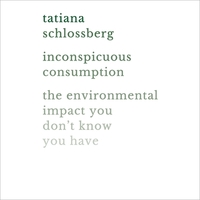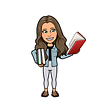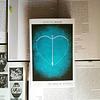Take a photo of a barcode or cover
So depressing, so many great sad jokes. Lots of food for thought although no solutions really offered since everything has pros and cons.
Fantastic. It was in language available to most people (not too "science-y"), but still deep enough that I learned many new things. The number specifics may not apply today, but it provides a baseline for reference. Also, her snark as she read it (I listened to the audiobook) was glorious.
I really appreciated the nuanced way the author approached the complex issues covered in this book. I also liked her deadpan, rather sarcastic sense of humour, but I suspect that it won't work for everyone.
I was excited to read this book and I really wanted to like it..... BUT it was not good. It read more like an essay for school than a book. There were so many facts that my eyes would start to glaze over, and then the author would put in a random joke that didn’t quite hit the mark.
Her writing was also not the best. She’d say “Now we’re going to talk about (insert topic).” Didn’t we all learn in middle school that you don’t announce what you’re gonna talk about, you just start talking about it.
And there were too many commas! An example that hurt my head was on page 111: “In the end, though, buying local or not isn’t going to save the planet, and within the current food system, it could, perversely, grow your carbon footprint.” It got really distracting the amount of commas she used. It seemed like she needed a different editor or something.
I just had to add in this sentence because it was so bad, I couldn’t believe it was actually printed: “There is another story I want to tell, and this one is about aquaculture” (page 118).
I had high expectations for this book (especially since it was getting good reviews) but it was disappointing, boring, and depressing. I will say that the section about air conditioning was good. But I wish she had gotten more into how we, as consumers, could make a difference.
Her writing was also not the best. She’d say “Now we’re going to talk about (insert topic).” Didn’t we all learn in middle school that you don’t announce what you’re gonna talk about, you just start talking about it.
And there were too many commas! An example that hurt my head was on page 111: “In the end, though, buying local or not isn’t going to save the planet, and within the current food system, it could, perversely, grow your carbon footprint.” It got really distracting the amount of commas she used. It seemed like she needed a different editor or something.
I just had to add in this sentence because it was so bad, I couldn’t believe it was actually printed: “There is another story I want to tell, and this one is about aquaculture” (page 118).
I had high expectations for this book (especially since it was getting good reviews) but it was disappointing, boring, and depressing. I will say that the section about air conditioning was good. But I wish she had gotten more into how we, as consumers, could make a difference.
I have to admit that I frequently zoned out for a sentence or two while reading this book, especially when it got a little technical, but the humor always brought me back, and I do feel like I learned a lot from reading it.
I listened to the audiobook read by the author. I enjoyed this perspective of inconspicuous consumption. She wrote about interesting areas of life where the average person has no clue of the environmental impacts of their actions. Ex: using the internet. Streaming a movie.
Super cool and i learned a lot. Definitely recommend, even if you already consider yourself educated on the topic
Super cool and i learned a lot. Definitely recommend, even if you already consider yourself educated on the topic
This is the book to read if you’re newly interested in sustainability and environmental conservation, but don’t know where to start or how your daily life is involved.
Each section is a short, well researched snapshot of the issues. Definitely not comprehensive, but a good summary of the env issues related to that topic (fishing, e-commerce, etc). The author challenges you to look at all aspects of the issue and provides tough questions.
This is NOT the book for you if you want a roadmap for “how to live sustainably” or how to save the world. This will bring out of the shadows interesting facts about how our daily actions are connected to the entire world and other humans- and whether it’s evident to us or not, what we do and buy, and HOW WE VOTE matters.
This book gives you enough information and insights to make you ask questions and start thinking more critically about the systems and products we’ve bought into. The responsibility shouldn’t be on the consumer to know every single piece to make the right choice, but it is up to us to ask the right questions and demand better.
Wanting a thorough deep dive into one single issue like GMOs, or highly technical info from a scientist? It’s not here. Looking for a well-researched, easy to read, journalist’s take on environmental issues and our every day lives- go for it! You’ll get some killer stats you can throw out at the next party (if we ever get out of quarantine) at the very least.
Each section is a short, well researched snapshot of the issues. Definitely not comprehensive, but a good summary of the env issues related to that topic (fishing, e-commerce, etc). The author challenges you to look at all aspects of the issue and provides tough questions.
This is NOT the book for you if you want a roadmap for “how to live sustainably” or how to save the world. This will bring out of the shadows interesting facts about how our daily actions are connected to the entire world and other humans- and whether it’s evident to us or not, what we do and buy, and HOW WE VOTE matters.
This book gives you enough information and insights to make you ask questions and start thinking more critically about the systems and products we’ve bought into. The responsibility shouldn’t be on the consumer to know every single piece to make the right choice, but it is up to us to ask the right questions and demand better.
Wanting a thorough deep dive into one single issue like GMOs, or highly technical info from a scientist? It’s not here. Looking for a well-researched, easy to read, journalist’s take on environmental issues and our every day lives- go for it! You’ll get some killer stats you can throw out at the next party (if we ever get out of quarantine) at the very least.
While I do like this book, it's definitely entry level. It's a good place to start if you have no background or knowledge of sustainability or climate change. The author does a fantastic job incorporating her own tone and personality into the book, which I think a lot of environmental writing lacks and so desperately needs. However if you have any background at all, this book covers a lot of important topics but in a surface level / shallow way. For the most part, Tatiana is on the nose about the complexities of measuring emissions and how reducing them is not as simple as it sounds. There are some topics I had issues with, such as the grouping of nuclear energy with fossil fuels. Overall this is a great place to start if you're looking to get into the environmental movement. However, this really is nothing new in terms of environmental writing.
Będziecie wściekli, będziecie w szoku, prawdopodobnie nabawicie się też małych (a może nawet całkiem sporych) napadów paniki, ale to trzeba przeczytać, choćby nie wiem, jak bolało.
informative
medium-paced





